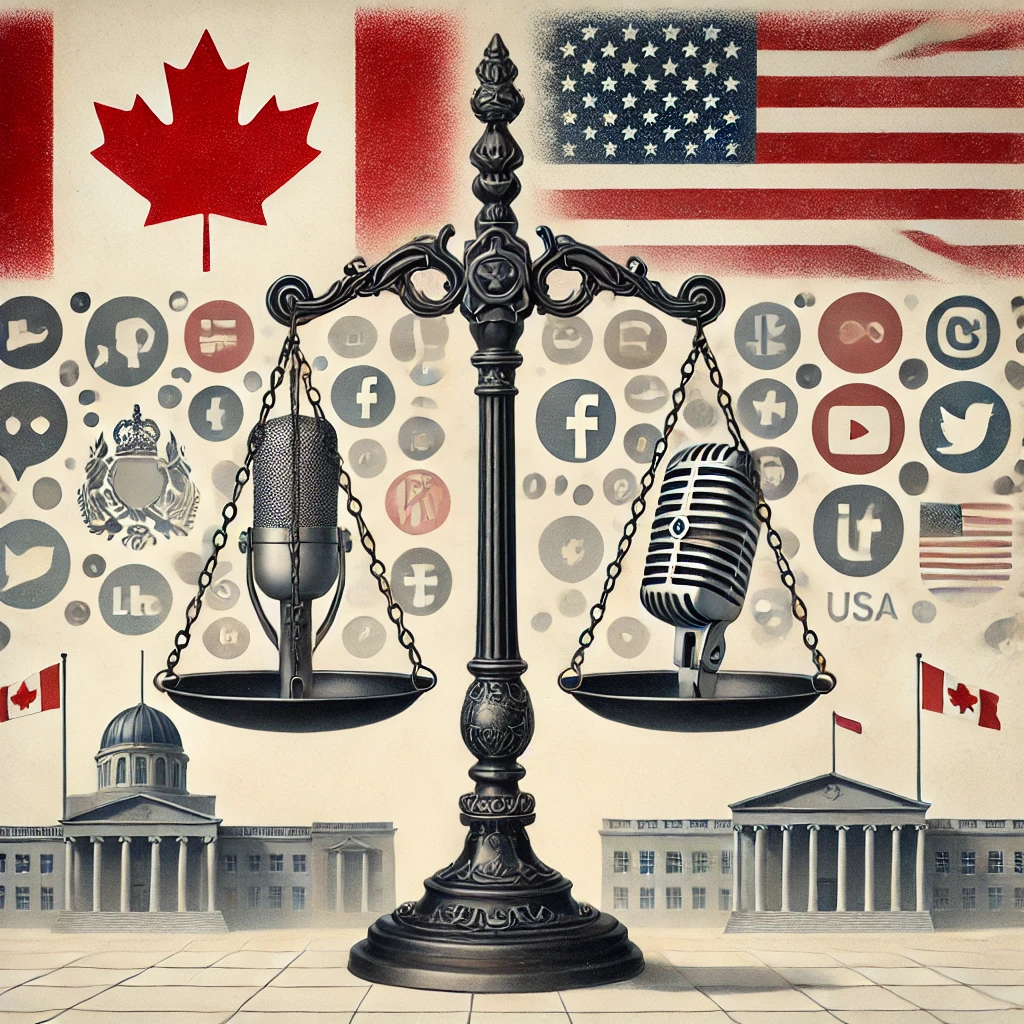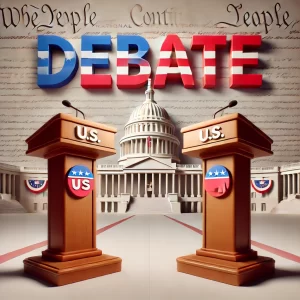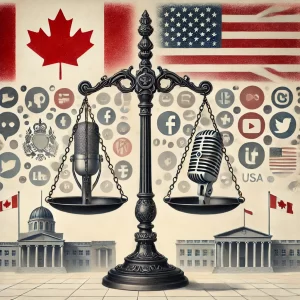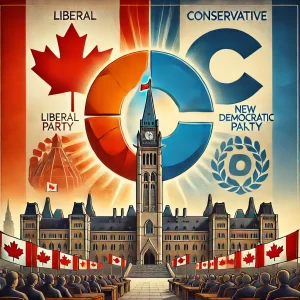
In recent years, the question of free speech has become one of the most hotly debated topics in North America and the UK. With governments proposing new laws to regulate online content, there’s growing concern that the right to speak freely could be eroded in the name of safety and protection. But where do we draw the line? And more importantly, who gets to decide what’s considered acceptable speech?
The Evolving Landscape of Free Speech Regulation
Historically, free speech has been a cornerstone of democracy in countries like the U.S., Canada, and the UK. These rights have allowed for open discourse, dissent, and the robust exchange of ideas, even when those ideas were unpopular or controversial. In the U.S., the First Amendment protects speech broadly, barring only a few exceptions like incitement to violence and obscenity. Canada’s Charter of Rights and Freedoms guarantees similar protections, though with more room for government intervention. In the UK, free speech is also enshrined in law, but recent developments have sparked debates about how far those protections should go.
In the last few years, however, the digital age has introduced new challenges. Governments are grappling with how to regulate harmful content, misinformation, and online abuse. As a result, proposals for new legislation—such as Canada’s Bills C-10, C-11, and C-18, the U.S.’s Section 230 debate, and the UK’s Online Safety Bill—have prompted important questions about the future of free expression.
Canada’s Digital Regulation: Protection or Overreach?
Canada’s Bills C-10, C-11, and C-18 have been hailed by some as a necessary response to the growing dominance of digital platforms and the need to protect Canadian content. But critics, such as Professor Michael Geist from the University of Ottawa, have raised concerns about the unintended consequences of these laws. Geist warns that such sweeping regulations could lead to government overreach, giving authorities unprecedented control over what Canadians post and see online. “Bill C-10 represents an extraordinary shift in Canadian broadcasting policy,” Geist argues. “It grants the CRTC sweeping powers to regulate user-generated content, effectively putting the government in a position to censor what Canadians post online.”
Is this really the case? Could these laws, designed to protect Canadian culture, also pose a risk to individual freedoms? It’s a debate that’s not going away anytime soon.
Section 230: Reforming the Internet’s Free Speech Foundation
South of the border, Section 230 of the Communications Decency Act has become a flashpoint in the ongoing battle over free speech. Originally designed to protect tech companies from being held liable for user-generated content, Section 230 has allowed social media platforms to flourish. But with growing concerns about misinformation and perceived bias, both Republicans and Democrats are calling for reform—though for very different reasons.
Conservative politicians like Senator Ted Cruz argue that Big Tech is silencing conservative voices, using content moderation as a tool to suppress free speech. Cruz states, “Big Tech is getting away with silencing conservative voices under the guise of moderating content. Section 230 needs to be reformed so that these companies can’t hide behind it while selectively censoring what Americans see and say.”
On the flip side, President Joe Biden and other Democrats are focused on how Section 230 allows platforms to turn a blind eye to the spread of harmful misinformation. The question is, can we reform Section 230 without stifling free speech? Or are we opening the door to a more sanitized, less diverse internet?
The UK’s Online Safety Bill: Safer or More Censored?
Across the Atlantic, the UK’s Online Safety Bill has been marketed as a way to make the internet a safer space by cracking down on harmful and illegal content. While the bill has good intentions, organizations like Index on Censorship are concerned about how vague terms like “harmful content” could be used to stifle free expression.
Ruth Smeeth, CEO of Index on Censorship, has voiced her concern: “The Online Safety Bill is a wolf in sheep’s clothing. It’s being sold as a way to protect people, but in reality, it gives the government and tech companies the power to decide what’s acceptable speech.”
The fear is that in an effort to protect users, we might end up with a heavily moderated internet, where only the most inoffensive voices are allowed to speak freely.
Where Do We Go From Here?
As the digital age forces us to rethink the boundaries of free speech, it’s clear that finding the right balance between protection and censorship is no easy task. Governments, tech companies, and individuals all have a stake in this evolving conversation. How much freedom are we willing to give up in the name of safety? And what are the long-term consequences of creating a more controlled digital space?
For a more in-depth discussion on these pressing issues, tune into our latest podcast episode, “The Right to Speak Free vs The Right to Be Silenced.” In this episode, Richie Barrington unpacks these legislative developments with a no-nonsense approach, incorporating statements from experts, politicians, and digital rights activists. Whether you’re a free speech absolutist or just someone concerned about where we’re headed, this episode is for you. Available now on [Podcast Platform], or wherever you get your podcasts.






